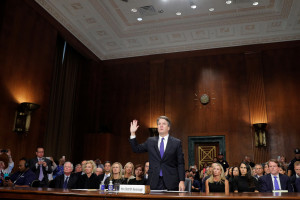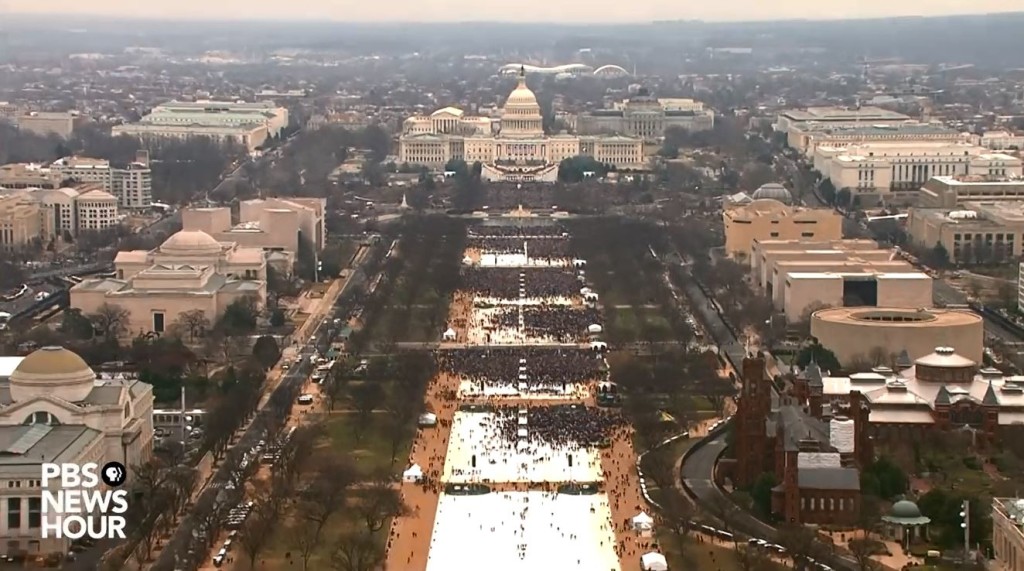This guest post comes from local Star Wars fanatic Luke LoPresto, who has written for De Civ before. It never would have occurred to me to review The Last Jedi in this way–my strategy has been to ignore all the political arguments around it–but, having read Luke’s take on it, I approve of his approach. (Now if someone could just convince me that the Casino Planet wasn’t a waste of Poe and Rose’s talents.) Now, over to Luke:
by Luke LoPresto
A long time ago in a galaxy far, far away, a film series went completely insane–or so you’d think from the Internet, where, to some, Star Wars: The Last Jedi is a daring sequel in an overcautious era, taking a blockbuster series into uncharted territory. To others, it’s a disorganized mess that betrays the childhoods of everyone involved. In an era where, as Chesterton warned, campaigns to abolish right and wrong have nearly abolished right and left, politics have come to dominate the debate over The Last Jedi. (Because we all know how much people loved the politics in the prequel trilogy.)
After two viewings, I want to explain why I love this movie and why you shouldn’t be put off by the ideologically “progressive” interpretations of The Last Jedi emanating from Hollywood and Manhattan.
Attack of the Thinkpieces
I’d be lying if I said I didn’t have some trepidation walking into the movie theater, worried that the movie from left-leaning Hollywood would consist of Disney spitting on my values as a cradle Catholic and a conservative. It was small reassurance to know that Disney loves money far too much to risk no longer getting it from white men like me.
So I was pleasantly surprised to see the movie was not a heavy-handed left-wing propaganda piece. General Hux never says “Make the Galaxy Great Again” or anything like that. But this didn’t stop all the usual suspects from posting commentaries on how the film was a condemnation of the usual feminist buzzwords like “toxic masculinity” and the most “feminist” and “diverse” Star Wars movie ever made (which is at least plausible; logic dictates one of them must be). Predictably, right-wingers have risen to the bait and condemned the movie for selling out to SJWs, unintentionally validating the thinkpiece-writers’ projections and letting them win the argument.
That’s not the narrative I read into the movie at all. I instead saw a broader parallel to the friction between the Millenial generation and Boomers or Gen X, represented by the younger and older contingents of the film’s cast, respectively.
A New Take
Poe, in particular, is so focused on destroying a First Order dreadnaught in the opening battle that he gets an entire Resistance bomber squadron killed, for which Leia demotes him. Then Leia is incapacitated and Laura Dern’s vice admiral Holdo takes over. Despite the Resistance fleet being tracked through hyperspace – bringing up the very real possibility of a mole in the heroes’ midst – by the First Order, who is now slowly picking off the fleeing heroes, Holdo refuses to explain her apparent non-plan to the recently demoted Poe, who apparently has never heard of operational security or “need-to-know,” except he uses the latter term later, so I guess he’s just an idiot.
Now the “I don’t like just sitting here doing nothing” trope is nothing new, but consider how the word “resistance” has gained whole new connotations in the two years between the releases of The Force Awakens and this film. The pyrrhic victory against the dreadnought, and later the disastrous consequences of Poe’s unsanctioned mission for Finn and Rose (specifically, the fleeing Resistance lifeboats being exposed and shot at, necessitating Holdo’s epic sacrifice), almost seem like an admonition of the modern “bash the fash” mentality. Rose’s lines about “saving what we love” instead of just “destroying what we hate” may sound uncomfortably close to the “Love Trumps Hate” slogan, but it’s not a bad lesson, not by any means. We should fight to defend the things worth fighting for, not just to crush our so-called enemies.
Meanwhile, on Luke Skywalker’s island, Rey begs the original trilogy’s hero to return to action, beat up the bad guys, and save the day. Luke, however, tempered by thirty years of experience and wisdom, is reluctant to act, knowing how the wrong move can have disastrous consequences. He’s not entirely right, but he’s not entirely wrong, either.
Rey, much like the audience, is convinced things will play out much like they did thirty years before, with herself in Luke’s role of young hero and Kylo Ren in Vader’s role of conflicted villain poised to return to the light. In the end she is…less right than she thinks. After Rey, so-called Mary Sue, gets Force-ragdolled around the room by Snoke, Kylo betrays his master, but it’s not out of the goodness of his heart; he’s just sick of taking orders. So all Rey has accomplished is replaced one dictator with a slightly less stable dictator. Whether this is good or bad for the galaxy at large remains to be seen.
Rey drawing hasty comparisons between the myths she grew up with and her current situation reminded me of those who compare “Trump’s America” to Nazi Germany. In both cases, we see people jumping to conclusions and reacting accordingly, with less-than-ideal consequences. Luke, having experienced a lot more of history himself, doesn’t fall for this trap (RIP Admiral Ackbar) and warns: “This is NOT going to go the way you think!”
The Phantom Controversy
I could go on. Kylo Ren’s declaration that he and Rey should “let the past die” and “kill it if you have to” echos the progressive sentiment of sweeping away any references to less politically-correct, less “enlightened” eras of history, the sort of mentality that leads to the removal of statues of anybody who ever said anything racist. And near the film’s conclusion, just when you think the last traces of the old Jedi have been burned to ashes, it turns out Rey salvaged the ancient Jedi sacred books. “Page-turners they were not,” but that doesn’t mean she can’t learn from them.
Did I also mention Poe’s rather hasty jump to the conclusion that Vice Admiral Holdo is a full-on traitor just because he can’t personally figure out her plan and/or doesn’t agree with it? Trump-Russia collusion scandals, anybody? Not only is Poe wrong, his subsequent mutiny is cut short so quickly it’s downright embarrassing. I’m sure people who break the chain of command usually think they’re doing the right thing, but the chain is there for a reason, guys, and breaking it can cost lives.
All of that sounds very different from the thinkpieces you’ll see elsewhere, right? Almost like I watched an entirely different movie. Did I discover the film’s creators’ true intentions? Well I can’t prove that I’m right…but you can’t exactly prove that I’m wrong, either.
Why did I come to such different conclusions? Probably because I love Star Wars enough to give it the benefit of the doubt, or because I want to hold out hope that not everybody in Hollywood is a full-blown social justice warrior.
Or – and hear me out on this one – maybe it’s because I focused on “who” the protagonists are: an isolated young adult desperately seeking her purpose in life, a recent defector of conscience who is still too scared for his own life to commit fully to the cause, a dedicated soldier who isn’t ready to watch his comrades die seemingly for nothing, a naive orphan grieving her sister’s death, a subordinate leader thrust to the top of the chain of command and now responsible for the lives of hundreds, an aging veteran at the end of his life who believes that his life’s work and purpose have all come to naught.
Those clickbait websites, on the other hand, are too focused on “what” the protagonists are: a white woman, a black man, a Hispanic man, an Asian woman, an older white woman with pink hair for some reason, an older white man.
The proper reaction to the ethnicity of the cast is “meh.” Far too many commentators, on both sides, have rejected color-blindness… which has helped make them blind to everything else going on in The Last Jedi.
The Franchise Awakens
A lot of people have rejected The Last Jedi because they don’t like the direction it takes the series, or because they think it betrays the earlier films, or because its subplots are subpar. I recognize there are plenty of valid criticisms for this movie, but I don’t think it is bad. I think it is challenging. It challenges the viewer’s preconceived notions about the Force, about Luke Skywalker, and about the very nature of storytelling itself. When was the last time a franchise blockbuster movie did that? In the age of comparatively interchangeable and disposable superhero films with minimal consequences, characters who are cornerstones of modern culture are being evolved in The Last Jedi, and our assumptions are being shattered, our preconceived notions disabused.
I know not everyone is as passionate about Star Wars as I, so I won’t begrudge anybody the right to hate this movie. But I will step in and argue with anybody who claims this movie is bad. As far as I can tell, nothing in this movie is indefensible. It’s well-executed, thought-provoking, and highly entertaining. You can dislike something and still acknowledge that it is good. I don’t particularly enjoy reading Shakespeare but I won’t claim it’s garbage.
But… if you were disappointed in the film, if you wanted to love it and found it wanting, I hope I’ve helped you find something to love about it. Find something you like about it and try to keep it in your mind. Find something you hate about it and try to explain it away in your mind. This isn’t real-world politics. It’s a movie. It’s a galaxy far, far away. A little bit of positive bias won’t hurt. Or at the very least, learn to respect it for what it is and for what it’s trying to do. It’s good practice for all of us in dealing with our fellow man. And when it comes to art and its influence on our thinking, inspiring us to engage with new and challenging points of view, whether we decide to agree with them or not, is definitely a goal worthy of a Jedi Master.









